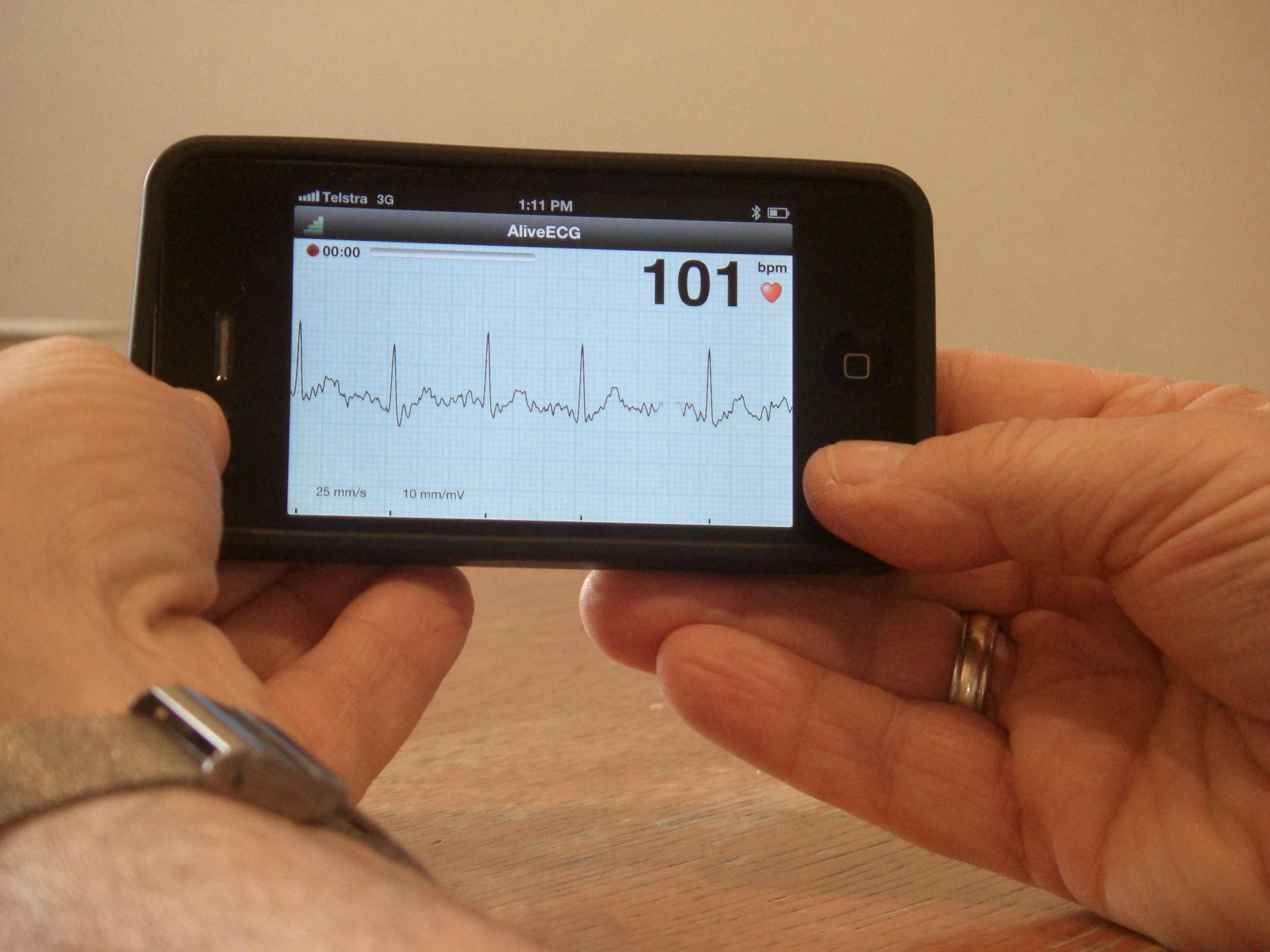University of Sydney researchers have found a unique way to identify the thousands of people at risk of stroke every year, using an ECG (Electrocardiogram) test delivered over an iPhone by pharmacists.
The test is quick and accurate, and can cheaply diagnose unknown atrial fibrillation (AF), a common abnormal heart rhythm that causes a third of all strokes and doubles the chances of premature death.
Lead author of the study published in the journal Thrombosis and Haemostasis, Nicole Lowres, predicts that if the test was rolled out to Australians aged between 65 and 84, it could prevent 1228 strokes over ten years, or 122 strokes each year.
“Strokes caused by atrial fibrillation are more deadly and can result in greater disability. Unfortunately, many who have the condition are unaware and have no symptoms that would lead them to visit their doctor,” Lowres says.
Atrial fibrillation often goes undetected and may have no symptoms before causing a stroke, which can be fatal. It is particularly common in people aged over 65, and is largely preventable by blood thinning medication.
“The iPhone ECG is 98 per cent accurate and it allows us to look at the rhythm of the heart and see whether it is beating correctly or irregularly,” Lowres says.
The iPhone ECG test is simple to conduct. The person just needs to hold the iPhone (which has a special case containing a miniaturised ECG recorder) for 30 seconds, and almost instantly the ECG is able to accurately detect a diagnosis for an abnormal heart rhythm. However, a spokesperson for the National Stroke Foundation warned the iPhone ECG screening program is still in its testing phase.
“While this is an exciting development in the screening of atrial fibrillation it is still in the testing phase,” the spokesperson says. “If people do have concerns it is important they see their doctor. Your doctor is best placed to monitor your health, your heart and take your pulse regularly.”
The study was carried out across 10 pharmacies in NSW all of which used the test on 100 participants. The research team who carried out the study believe ECG screening for people over 65 could become a part of regular health checks. Along with blood pressure monitoring or blood sugar testing, local pharmacies could include ECG screening as part of a combined health check-up.
While ECG screening using an iPhone in pharmacies has only passed the trial stage, the National Communications Director of the Pharmacy Guild, Greg Turnbull, believes pharmacies are well equipped to facilitate ECG tests and reduce the levels of stroke in communities.
“We support any expansion of the preventative health and screening role for pharmacies. Pharmacies add value to the health system and take pressure off doctors offices and hospital waiting rooms,” Turnbull says.
“ECG screening using something as simple as an iPhone is a good common sense approach that should be adopted in collaboration with doctors and health professionals to maximise the health outcomes of the community.”












